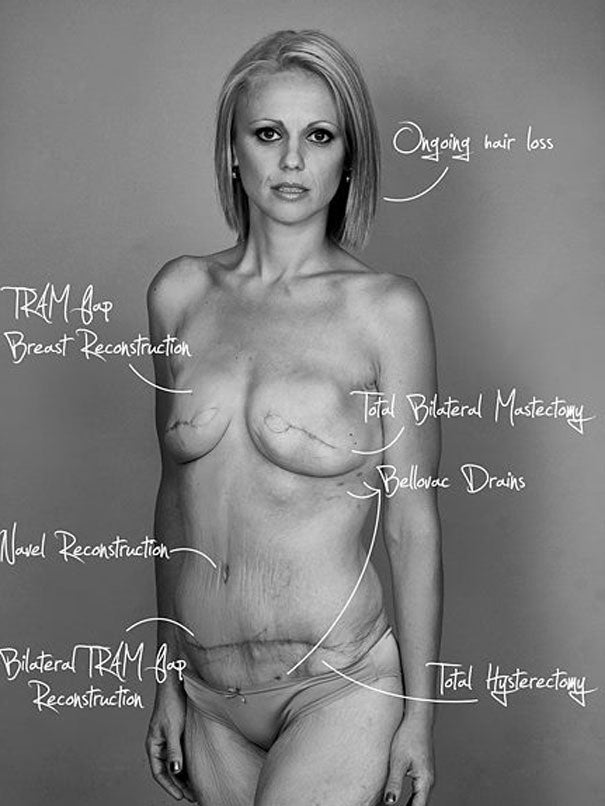Australian woman takes bold step to raise breast cancer awareness - by posting photographs showing surgery scars on Facebook
Beth Whaanga hopes the images will remind people that 'cancer affects everyone'

Your support helps us to tell the story
From reproductive rights to climate change to Big Tech, The Independent is on the ground when the story is developing. Whether it's investigating the financials of Elon Musk's pro-Trump PAC or producing our latest documentary, 'The A Word', which shines a light on the American women fighting for reproductive rights, we know how important it is to parse out the facts from the messaging.
At such a critical moment in US history, we need reporters on the ground. Your donation allows us to keep sending journalists to speak to both sides of the story.
The Independent is trusted by Americans across the entire political spectrum. And unlike many other quality news outlets, we choose not to lock Americans out of our reporting and analysis with paywalls. We believe quality journalism should be available to everyone, paid for by those who can afford it.
Your support makes all the difference.A young woman who posted graphic images on her Facebook wall, detailing the ravaging effects of cancer surgery on her body, has said that those who complained about the photographs “missed the point”.
Beth Whaanga, 32, from Brisbane, Australia, posted the series of candid pictures on Sunday as part of a cancer awareness project.
But she said she has been de-friended by more than 100 people since publicising the images on the social networking website.
The mother-of-four had to have a double mastectomy, breast reconstruction and a hysterectomy after cellular changes were detected in her left breast, and she was found to carry the BRCA2 gene.
In a bid to highlight the importance of regular self-checks, Ms Whaanga worked with photographer Nadia Masot to produce the photographs for their joint project “Under the Red Dress”.
Describing the venture, Ms Whaanga said: “These images are confronting and contain topless material. They are not in any way meant to be sexual. The aim of this project is to raise awareness for breast cancer. If you find these images offensive please hide them from your feed.
“Each day we walk past people. These individuals appear normal but under their clothing sometimes their bodies tell a different story.
“Nadia Masot and I aim to find others who are willing to participate in our project so that we might show others that cancer affects everyone. The old and the young, age does not matter, self-examination is vital. It can happen to you.”
However, the images were perceived to be too explicit by some and were reported to Facebook, which has not removed them from its site.
The pictures also sparked an animated discussion on Ms Whaanga's Facebook wall.
Writing in defence of Ms Whaanga, her sister Emma Rayner said: "Seriously... I cannot believe how immature people are to delete you off Facebook.
"If you can't personally distinguish the difference between porn and awareness then you obviously have issues within yourself."
However, Ms Whaanga's brother-in-law, Andrew Young, suggested that the social networking site was not an appropriate platform.
He said: "I think everyone should be understanding of everyone's differing values and beliefs.
"I personally do not agree with posting confronting pictures on a site where people do not get a choice wether they wish to view it, as happened to me when scrolling through my news feed."
But he added: "I'm very supportive of Beth."
Ms Whaanga said: "The aim of the photo shoot was to make women and men aware. Aware of any changes to their body, to show that cancer does not discriminate between gender, race, or age.
"It affects all of us. For those of us who have been lucky enough to prevent their condition from continuing or occurring we have a responsibility to make others aware.
"Check your breasts/ pectorals under your arms and neck. If you find anything don't brush it off, better to be safe and alive."
Join our commenting forum
Join thought-provoking conversations, follow other Independent readers and see their replies
Comments